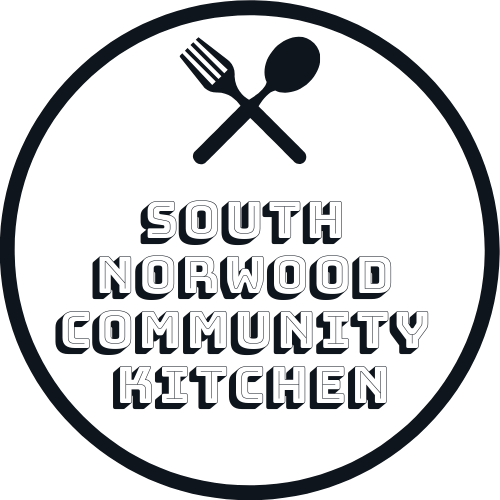Turning Food Waste into Hope and Sustainability
We had the privilege of welcoming Santana and Abraham and other year 10s from Oasis Shirley Park to the Community Kitchen for their work experience. They wrote us an article about food waste while they were here
Food waste is a significant global issue, with profound social, economic and environmental impacts. Each year, an estimated 1.3 billion tonnes of food is wasted, contributing to greenhouse gas emissions, squandering resources and exacerbating food insecurity. Community led initiatives like the South Norwood Community Kitchen are making a substantial difference in reducing food waste and fostering food justice.
SNCK operates to alleviate hunger and minimize food waste. SNCK began as a grassroots initiative to address food insecurity within the local community. Its core activities revolve around rescuing food from supermarkets, restaurants, and other businesses that would otherwise be discarded and creating nutritious meals, saving 33 tonnes (or 33,000 kilos) of food producing 15,000 meals per year.
In addition to community meals, SNCK runs a food pantry, distributing surplus food directly to individuals and families. This initiative allows community members to take home groceries that might otherwise go to waste, providing them with a dignified way to access the food they need. The pantry operates for free, ensuring that financial constraints do not prevent anyone from accessing food.
Educational programmes are another vital component of SNCK’s strategy to reduce food waste.
SNCK hosts workshops and cooking classes aimed at teaching community members how to make the most of the food they have, reduce waste in their homes, and adopt sustainable eating practices. These programmes empower individuals with the knowledge and skills to make a positive impact on food waste reduction at a personal level.
The impact of SNCK extends beyond just food waste reduction. By bringing people together around food, SNCK builds a stronger and more resilient community. It offers a space for social interaction, support and fostering a sense of belonging. The Kitchen also engages with local schools and organizations, raising awareness about food waste and sustainability among younger generations.
The Kitchen is a haven for a diverse group of compassionate and dedicated individuals who come together to make a meaningful difference, from volunteers who give up their time and energy, to neighbours who bring surplus foods from their own cupboards, the community’s spirit of generosity shines brightly. These loving and caring people help create an atmosphere of warmth and acceptance, ensuring that everyone who walks through the doors feels valued and supported. Their collective efforts not only reduce food waste but also foster a sense of unity and resilience.
In conclusion, SNCK exemplifies how community-led initiatives can play a crucial role in addressing the issue of food waste. By rescuing surplus food and transforming it into nutritious meals and groceries for those in need, SNCK not only reduces waste but also promotes food security and community cohesion. Their efforts highlight the importance of local action in tackling global problems, demonstrating that with creativity, dedication, and collaboration, significant change is possible.
By Santana and Abraham, Yr 10 Oasis Shirley Park

